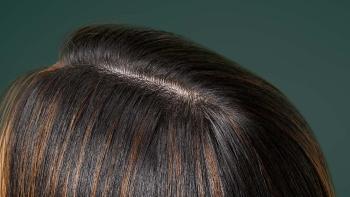What is Psoriasis?
Psoriasis is a chronic skin condition characterised by patches of red, flaky, scaly skin. Those with psoriasis have an increased production of skin cells, which build up in certain areas of the body, creating the scaly patches you see on the surface.
The exact cause of psoriasis is still unclear, but it’s believed to be an autoimmune condition where the immune system mistakenly attacks healthy skin cells. This is often triggered by a combination of:
Genetic factors: A family history of psoriasis can increase your risk.
Immune system dysfunction: Overactive immune responses accelerate skin cell turnover.
External triggers: Stress, food allergies, arthritic tendencies, certain infections, and some medications can all worsen symptoms.
Psoriasis is not contagious, meaning you can’t ‘catch’ it from someone else. It affects around 2% of the global population and can occur at any age, though it’s most common between 20 and 30.
The Main Symptoms of Psoriasis
Psoriasis can occur anywhere on the body, but the elbows, knees, lower back and scalp are the most common areas. When it affects the scalp, psoriasis can be severe and cause things like:
Adherent, tightly packed silvery scales
Underlying redness and inflammation
Itching or irritation
This can sometimes be mistaken for dandruff or other scalp conditions, but scalp psoriasis tends to form thicker, more persistent patches.
Understanding The Link Between Psoriasis And Hair Loss
While psoriasis itself doesn’t usually cause significant hair loss, there are some ways it can indirectly affect your strands. These include:
Tight scaling: Very dense, adherent scales can constrict the hair shaft diameter, making hair more brittle and prone to breakage.
Excessive scratching or aggressive removal of scales can also damage follicles and contribute to shedding.
Psoriasis is sometimes confused with pityriasis amiantacea which is a separate scalp condition that can lead to distinct hair loss and requires a different approach.
Expert Advice For Treating Psoriasis
There is currently no cure for psoriasis, but the right care can make a huge difference in comfort, scalp health and flare-up prevention. At our Philip Kingsley Clinics, our Trichologists are experts in treating and relieving its symptoms. Clients are often able to manage scalp psoriasis effectively at home, using bespoke treatment products prescribed after a consultation. Mild cases can usually be cleared with creams and tar-based shampoos. Severe cases often require more care and patience. Scales must be softened and removed gently to avoid damaging the scalp or hair.
In-clinic, we use specially formulated creams, warm steamers and infrared lamps to soften the scales before carefully removing them. This process often provides immediate relief and makes future treatments more effective, as the scalp is cleared and ready to respond better to topical products. Repeat treatments are typically required if symptoms return. Your Consultant will also provide personalised guidance on at-home management - including advice on stress management, scalp care routines and even hair colouring techniques that won’t aggravate your scalp.
Effective Management Techniques For Scalp Psoriasis
Asides from direct treatment at our Clinics, lifestyle adjustments can also help reduce flare-ups. Here are some top tips:
Keep an eye on stress levels: Stress is a common trigger for psoriasis flare-ups. Techniques like mindfulness, yoga or regular exercise can all help.
Create a scalp care routine: Use gentle, non-irritating shampoos (like our Philip Kingsley Flaky/Itchy Scalp Shampoo) and avoid overly hot water and harsh chemical treatments.
Avoid scratching: As tempting as it is, scratching can worsen inflammation and increase the risk of temporary hair loss.
Monitor your triggers: Keep track of what worsens your symptoms (from diet to weather) and discuss patterns with your Trichologist.
The Best Philip Kingsley Products To Support Scalp Health
Managing scalp psoriasis at home is easier with the right targeted care. While no product can cure psoriasis, gentle and soothing formulas can help reduce discomfort, calm irritation and maintain a healthier scalp environment between flare-ups. Here are some of our Trichologist-approved picks:
Philip Kingsley Flaky/Itchy Scalp Shampoo: A gentle yet effective cleansing shampoo that removes flakes and relieves irritation without stripping the scalp, helping reduce build-up that can worsen scaling.
Philip Kingsley Flaky/Itchy Scalp Toner: A leave-in tonic that cools and calms the scalp, with antimicrobial properties to maintain a balanced scalp environment and reduce redness and discomfort.
Philip Kingsley Soothing Scalp Mask: A weekly scalp treatment that hydrates, soothes and cools the scalp, providing relief from tightness or irritation while promoting a healthier skin barrier.
Philip Kingsley Overnight Scalp Barrier Serum: A fast-absorbing serum that supports and strengthens the scalp’s natural barrier helping maintain long-term scalp health.
Philip Kingsley Density Drops: A lightweight daily serum that supports and protects the scalp environment, helping to maintain healthy hair density while also reducing excess oil.
Always follow the guidance of your Trichologist before starting new treatments if you have an active psoriasis flare-up. Some ingredients may be too strong on inflamed or broken skin, so professional advice is key.
Your Scalp Psoraisis Questions, Answered
Q: Is scalp psoriasis contagious?
A: No. Psoriasis is an autoimmune condition - not an infection. It cannot be passed from one person to another.
Q: Can scalp psoriasis cause hair loss?
A: Psoriasis itself doesn’t directly cause large amounts of hair loss, but severe scaling, inflammation, or scratching can make hair more brittle, leading to temporary shedding or breakage.
Q: What are the main symptoms of scalp psoriasis, and how can I recognise them?
A: Scalp psoriasis typically presents as thick, silvery-white scales over red patches, often accompanied by itching or irritation. It’s usually more stubborn and tightly packed than dandruff or dry scalp.
Q: Are there specific triggers that can worsen scalp psoriasis symptoms?
A: Yes. Stress, infections, certain medications, cold weather, hormonal changes or even skin injuries can all trigger or worsen flare-ups.
Q: Is it safe to use hair dyes or chemical hair treatments if I have scalp psoriasis?
A: In many cases, yes - but it depends on your scalp’s current condition. Your Trichologist can advise on the safest colouring techniques and timings to avoid irritation during flare-ups.




